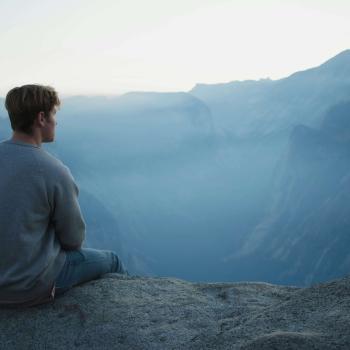If you’re like me, you’ve long dismissed koans as silly wordplay. I mean, what’s one to make of questions like “What’s the sound of one hand clapping?” To understand them better, I did a little digging and now have a better idea of the concept behind koans—and why some spiritual practitioners find them valuable.
Carol Kuruvilla, writing in HuffPost, describes koans as “a riddle or puzzle that Zen Buddhists use during meditation to help unravel greater truths about the world and about themselves.” Interestingly, in the podcast series The Koan Way, Henry Shukman says that koans are “more than riddles or puzzles,” and are “a way for you to open yourself up to the inner regions beyond knowing.”
Koans may seem nonsensical at first. But that’s the point.
Koans are not meant to be addressed by our rationale, thinking mind. They’re actually designed to put this part of the brain on pause, in an attempt to activate our “beginner’s mind.” In this state, we experience things as if for the first time. Shukman calls it a “marvelous clarity,” where everything becomes clearer.
While koans are often told as stories, they can also be short pithy statements meant to get the brain to move to this awakened state, if only for a moment. In Shukman’s words, there’s “no pushing, no seeking.” We need to let the words of the koan flow over us, clearing the mind so we can view the world from a new and fresh perspective.
Koans can be part of your meditation practice.
According to Shukman, a koan practice starts much like a standard meditation practice. Start by finding a comfortable chair and begin focusing on the breath. Breathe in. Breathe out. Get to a point where you feel centered. There’s no effort involved. Rest in silence and stillness.
Shukman then suggests a “beginner” koan: What is this? It works like this:
Silently ask yourself the question “What is this?” Sit with the question not looking for a result or an answer. Ask again “What is this?” Drop all expectations. “What is this?” Focus on the breath. “What is this?” Enjoy the quiet. “What is this?” Feel the chair you’re sitting on. “What is this?”
Now let’s look at a Zen approach to koans.
While my old friend, the late Jim McMullan, does not use the word koan, he employed a very similar approach in his Zen practice. He once wrote a book about it titled Instant Zen, A Do-it Yourself Guide to Awareness and Discovery. Jim writes that for him Zen is:
A way of looking within that helps you view life from a new vantage point—one that has no fixed limits. The purpose is not understanding, it is to allow you to experience the ultimate truth that lies beyond all material concepts.
Jim believed that dealing directly with the mind leads to frustration, as the mind will offer up all manners of distraction. Koans, like the Zen phrases that follow, allow the seeker to slip past “the beast that never sleeps” by using an indirect approach. By repeating and contemplating koan-like phrases, it “allows you to find your own truth without triggering the judgement mechanisms of the mind.”
Like Shukman, McMullan reminds us that “there should be no effort expended. Just let it happen—go with the flow.” It’s all an attempt to “sneak up on your mind” and “see deep within to that place where your own small voice of truth abides.” McMullan continues:
The mind never rests, never lets down its guard. Behinds its gates lies access to one’s true self—higher consciousness.
Jim lists several hundred Zen koans to ponder, here are few of my favorites. Choose one that appeals to you and, starting with the meditation technique mentioned above, roll the words over in your mind. Rest and repeat. Rest and repeat. And remember, there’s no effort involved.
11 Zen Koans to Open Up Your Mind
The quieter you become, the more you are able to hear.
No thoughts. No action. No movement. Total stillness.
The way is not a matter of knowing or not knowing.
He who knows that enough is enough will always have enough.
The harder you try the less you know.
You are there now. What was never lost can never be found.
To find your way you must close your eyes and walk in the dark.
Where am I? Here. What time is it? Now.
The way is an empty vessel that is never filled.
Do not seek what you already have.
Stop talking, stop thinking, and there is nothing you will not understand.


















